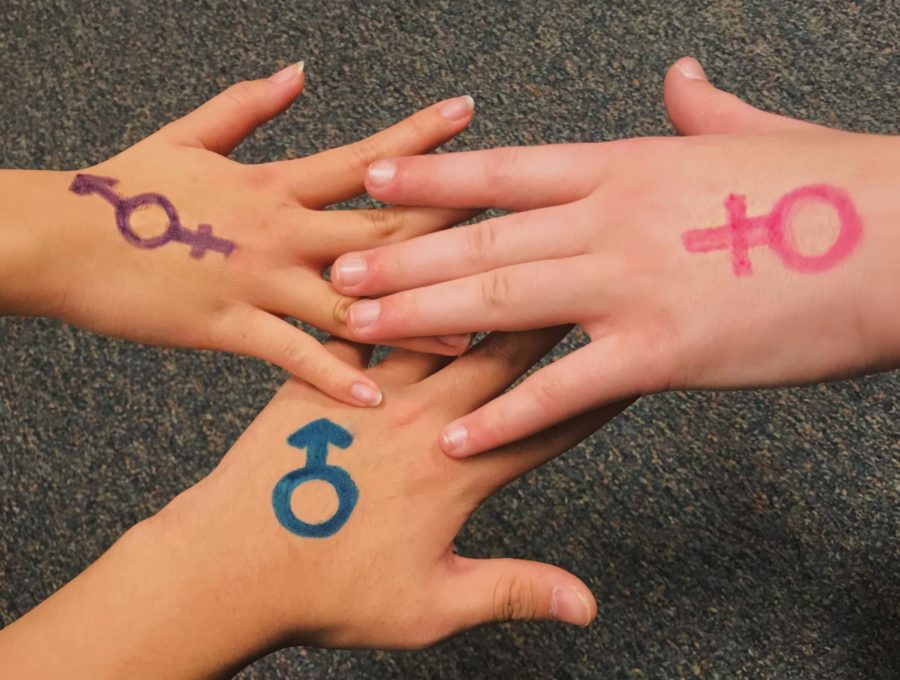Affinity group invites new voices
Dare to Empower, also known as “DTE,” puts a focus on empowering female-identifying students by discussing issues they’re handing in and out of school. Now, male-identifying and non-female identifying students are also meeting in affinity to discuss allyship, as well as issues that this group faces.
“An ally is not just as a tag, but an action. They’re active strategies or active things that we can do to be a good ally,” Mr. Cortez, one of the teachers leading the new affinity group, said. “I think learning about those strategies and then teaching those strategies to others is very important.”
The first meeting took place on Tuesday, Dec. 3, and more will take place next semester.
The group for female-identifying students has already hosted several lunch and learns led by female-identifying staff members. Attendees are treated to food and taught valuable lessons that the DTE subcommittee hopes will spark positive change in the female-identifying student body.
English Teacher Ms. Christian emphasized that it’s especially important that this message is focused on student voices because of evidence that shows female-identifying individuals are often at a disadvantage.
“It’s rooted in knowing that statistics show both locally on our campus as well as nationally and globally that female-identifying people are a historically underrepresented group,” Christian said. “Our tagline is empowering voices, raising awareness, making a difference and celebrating successes to create lasting local and global change for the female-identifying population.”
The female-identifying affinity group gained members from all grades and has shared strategies for empowerment, confidence and voicing opinions in and out of school.
Junior Kelly Fagel stated that DTE has given her the courage to do previous things she feared.
“DTE has become a home for me at VHHS. I know there are people I can trust one-hundred-percent and the group heavily focuses on growth for everyone and truly supporting every girl that attends,” Fagel said.

